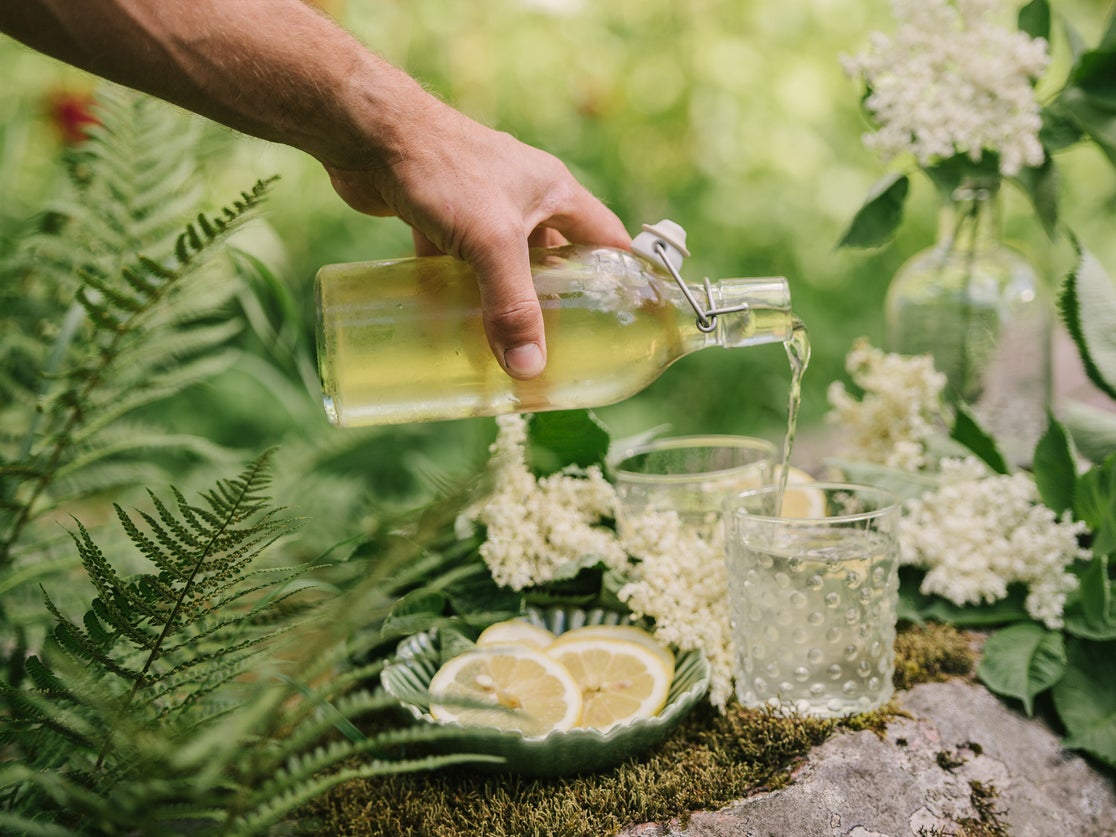20 pledges for 2020: How to forage for elderflowers during lockdown
Emma Snaith: I'm making the most of these delicate summery flowers while they're in bloom as part of my pledge to eat local

You may have started to notice on some of your socially-distanced walks that it’s elderflower season.
I’m now spotting bunches of the tiny, fragrant white flowers cropping up all over the streets and parks of south-east London.
The large, flat-topped clusters grow prolifically throughout the UK, and can be found as easily in woods and country lanes as in urban roadsides and parks.
While I’ve found it difficult to stick to my challenge of eating only locally-produced food during lockdown with markets shut and supply chains under pressure, luckily foraging for elderflowers is as local as you can get.
The window for elderflowers is short, with the flowers ready between late-May to mid-June, so it’s important to make the most of them while you can.
But once you’ve picked your crop, the cordials and preserves you make with the delicately-scented flowers last for months.
As an elderflower novice, I decided to start by making a very simple vinegar before moving on to a classic cordial. Below I’ve shared the recipes I’ve tried.
But first, a word about foraging for elderflowers. Make sure you double check that what you are picking are actually elderflowers (I found the Woodland Trust’s guide useful). Only collect from sites where the flowers are in abundance, and leave plenty behind.
It’s best to pick your elderflowers in the morning of a dry day before insects harvest the flowers’ pollen. Avoid flowers lower down that dogs or foxes may have urinated on and gently drop them into a cloth bag so any insects have a chance to escape. Pick off any remaining insects before you use the flowers, but don’t wash them as this can spoil the natural flavour.
Elderflower vinegar
This is probably the quickest and easiest way to bottle up the summer scent of elderflowers and is perfect mixed with rapeseed oil, honey, salt and pepper as a dressing to drizzle over summer salads. This recipe is courtesy of food writer Elly Pear.
Ingredients
350ml bottle of white wine or apple cider vinegar
Three heads of elderflower
Method
-
Gently warm a few heads of elderflowers in a big pan with a 350ml bottle of white wine or apple cider vinegar
-
Turn off the heat and leave to infuse for at least a few hours, preferably overnight
-
Strain back into the vinegar bottle using a muslin cloth
Elderflower cordial
My housemate Ella began making elderflower cordial last year, so luckily we always have a great supply in the summer. It’s perfect simply with fizzy water and a slice of lemon or added to gin and tonics. Below is Ella’s recipe for the cordial - the taste of summer in a bottle.
Ingredients
20-30 sprigs of elderflower
1.5 litres water
1-2 kg sugar (to taste)
85g citric acid
2-3 lemons
Rose petals (optional)
Method
-
Add the sugar and water to a pan and heat gently until sugar is dissolved
-
While you’re waiting, place the elderflower sprigs in a large bowl along with citric acid and grated zest and juice of two lemons. Add the rest of the lemons once squeezed and zested along with rose petals (if using)
-
Once the sugar is dissolved add the sugar water mixture to the bowl of elderflowers
-
Cover the bowl with a tea towel and leave to infuse for a day
-
Strain using a muslin cloth or fresh tea towel and pour into airtight bottles. Keep in the fridge.
Subscribe to Independent Premium to bookmark this article
Want to bookmark your favourite articles and stories to read or reference later? Start your Independent Premium subscription today.

Join our commenting forum
Join thought-provoking conversations, follow other Independent readers and see their replies